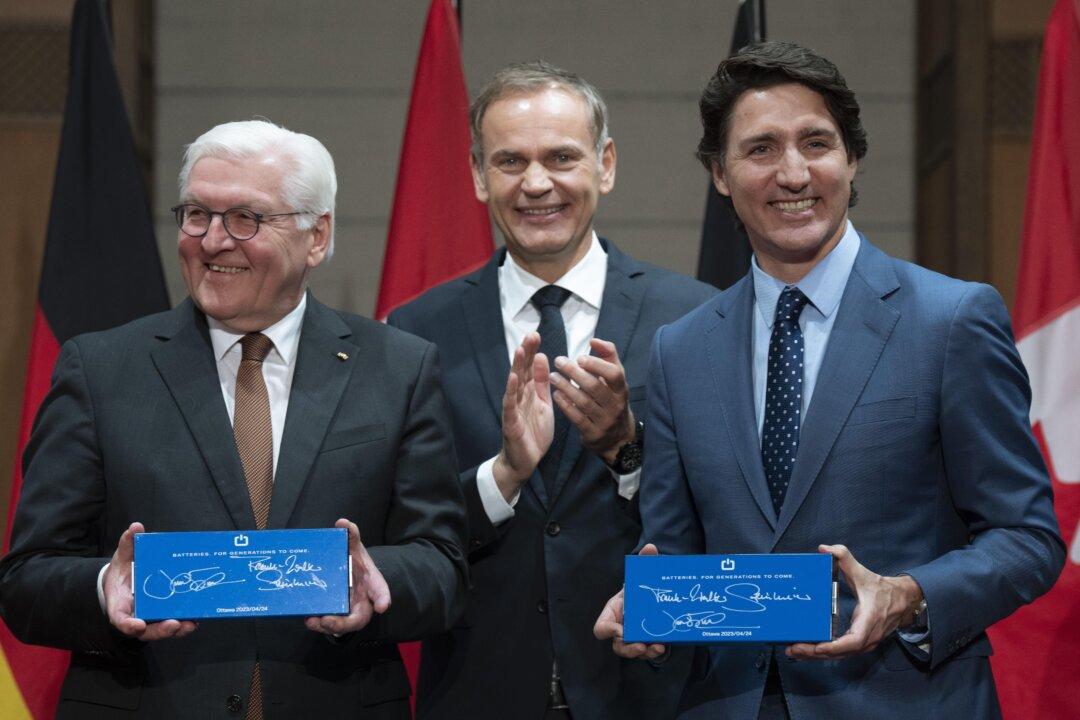Federal subsidies for electric vehicle manufacturers now total $32 billion, which is more than twice the annual output of the entire Canadian automobile sector.
Cabinet has approved a $322 million subsidy to Ford and its two South Korean business partners to make electric battery parts in Becancour, Quebec. On top of the federal subsidy, Ford and its associates—South Korea’s EcoPro BM and SK On Co.—will get a $322 million “partially forgivable loan” from the Quebec government, according to Blacklock’s Reporter.





